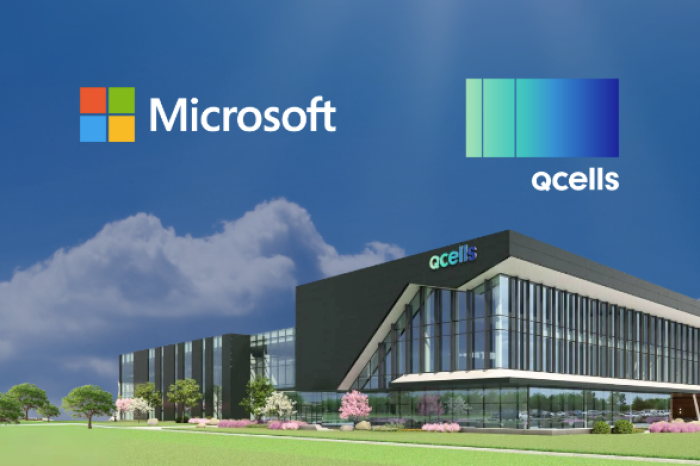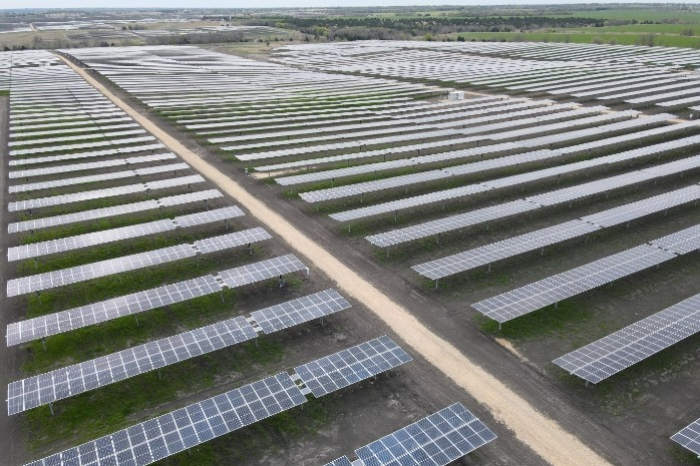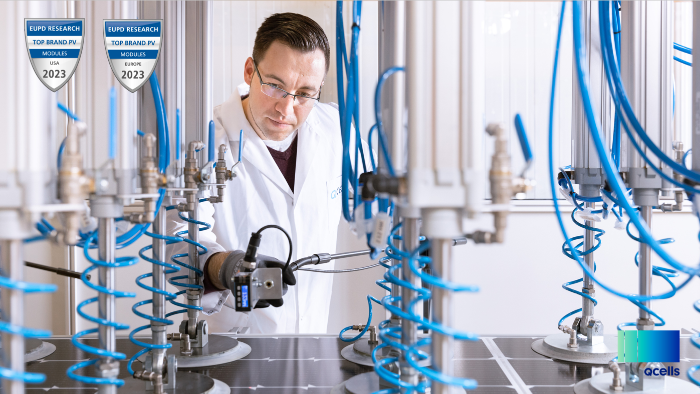Energy
Qcells, Microsoft strike 12GW solar panel deal
The South Korean solar power company said the eight-year contract is the largest deal of its kind in the US
By Jan 09, 2024 (Gmt+09:00)
2
Min read
Most Read
LG Chem to sell water filter business to Glenwood PE for $692 million


Kyobo Life poised to buy Japan’s SBI Group-owned savings bank


KT&G eyes overseas M&A after rejecting activist fund's offer


StockX in merger talks with Naver’s online reseller Kream


Mirae Asset to be named Korea Post’s core real estate fund operator



Hanwha Q Cells Co., a solar power unit of South Korea’s chemicals-to-defense conglomerate Hanwha Group also known as Qcells in overseas markets, will supply 12 gigawatts (GW) of solar panels to Microsoft Corp. for eight years in what would be the largest deal of its kind in the US.
The subsidiary of Hanwha Solutions Corp. announced on Monday that it has agreed to provide the US tech behemoth with 12GW worth of solar modules, enough to power 1.8 million homes annually as well as engineering, procurement and construction (EPC) services from 2025 to 2032.
They agreed not to disclose the financial terms for the eight-year deal, which is believed to be the largest ever deal of its kind in the US, according to the Korean company.
This deal expands on the two partners’ previous 2.5 GW module and EPC service deal announced in January 2023, Qcells said.
WIN-WIN TO BOTH QCELLS AND MICROSOFT
The expanded deal is expected to help Microsoft achieve its aggressive sustainability goals to reduce carbon and waste and protect water by 2030.

As part of its sustainability efforts, the US company is striving to cover 100% of its electricity use with renewable energy by 2025, and Qcells will provide at least 1.5 GW of solar panels a year to Microsoft through 2032.
The Korean solar energy company, which is seeking to build a complete solar supply chain in the US, will use solar modules to be churned out from its solar manufacturing hub, its so-called solar hub, in the US state of Georgia.
In August last year, it commenced the operation of its solar panel factory in Dalton, Georgia with an annual production capacity of 5.1 GW. It is currently building another plant with a 3.3-GW capacity in Cartersville, also in Georgia.
Once the new plant is completed in late 2024, the Korean solar energy solution provider will be the first company to have a complete core solar energy value chain in North America with the largest silicon solar module production capacity in the region.
As Qcells will produce its own silicon ingots, wafers, cells and modules in the US, it will be well placed to compete against Chinese rivals that face heavy tariffs on their solar panel exports to the US.

Under the Inflation Reduction Act, many clean energy companies are also encouraged to build green energy component-producing facilities in the US.
To benefit from the IRA subsidies, Qcells announced last year a $2.5 billion investment in the US, including the construction of the solar module plant in Cartersville.
Qcells’ parent company Hanwha Solutions in April 2022 also injected more than $200 million into REC Silicon’s factory in Moses Lake, Washington that produces polysilicon. Its polysilicon will be used by the Qcells factory in Cartersville, the company said.
The US solar energy market is forecast to grow steadily thanks to industry-wide decarbonization efforts and generous government support to promote clean energy use.
According to global research and consultancy group Wood Mackenzie, US solar panel installation demand is forecast to rise to 42 GW in 2027 from 36 GW in 2024.
Qcells is the largest residential and commercial solar module maker in the US.
Write to Sang Hoon Sung at uphoon@hankyung.com
Sookyung Seo edited this article.
More to Read
-

-
 EnergyHanwha Q Cells expects windfall gain from Chinese rivals’ woes
EnergyHanwha Q Cells expects windfall gain from Chinese rivals’ woesAug 21, 2023 (Gmt+09:00)
2 Min read -

-
 EnergyHanwha Q Cells sweeps global solar energy industry awards
EnergyHanwha Q Cells sweeps global solar energy industry awardsJun 08, 2023 (Gmt+09:00)
1 Min read -
 EnergyHanwha Q Cells holds No.1 position in US solar module market
EnergyHanwha Q Cells holds No.1 position in US solar module marketMay 10, 2023 (Gmt+09:00)
1 Min read
Comment 0
LOG IN


